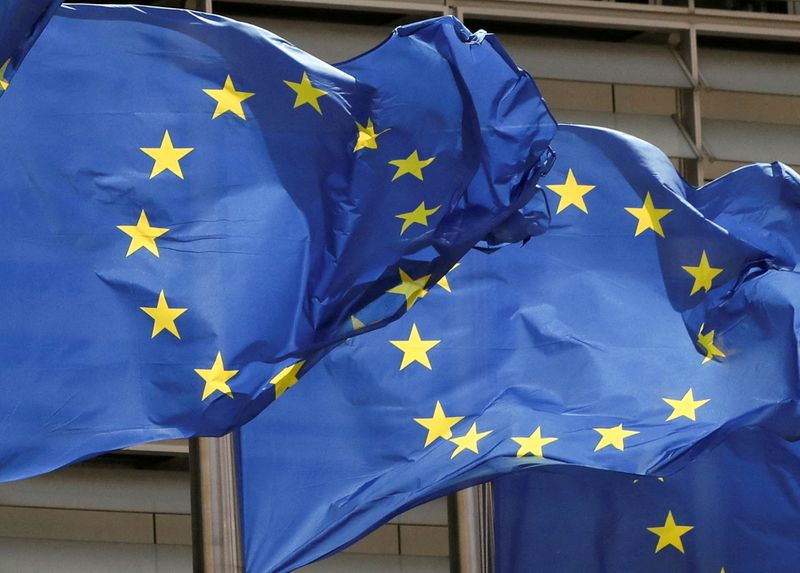
© Reuters. FILE PHOTO: European Union flags flutter outside the EU Commission headquarters in Brussels, Belgium May 5, 2021. REUTERS/Yves Herman
By Foo Yun Chee
BRUSSELS (Reuters) -Alphabet’s Google (NASDAQ:), Amazon (NASDAQ:), Apple (NASDAQ:), Meta and Microsoft (NASDAQ:) may have to change their core business practices in Europe as EU countries and EU lawmakers on Thursday clinched a deal on landmark rules to curb their powers.
France, which currently holds the rotating EU presidency, said in a tweet that there was a provisional agreement after eight hours of talks.
EU industry chief Thierry Breton said in a tweet that the deal would ensure fair and open digital markets.
“What we want is simple: fair markets also in digital. Large gatekeeper platforms have prevented businesses and consumers from the benefit of competitive digital markets,” EU antitrust chief Margrethe Vestager, who proposed the rules just over a year ago, said in a statement.
“This means that the time of long antitrust cases, during which the authorities were lagging behind the big tech companies, is over,” said EU lawmaker Andreas Schwab, who had steered the debate in the European Parliament.
The Digital Markets Act (DMA) sets out rules for online gatekeepers – companies that control data and platform access.
It will cover gatekeepers in online intermediation services, social networks, search engines, operating systems, online advertising services, cloud computing, video-sharing services, web browsers and virtual assistants.
Under the DMA, the tech giants will have to make their messaging services interoperable and provide business users access to their data. Business users would be able to promote competing products and services on a platform and reach deals with customers off the platforms.
The rules prohibit the companies from favoring their own services over rivals’ or preventing users from removing pre-installed software or apps.
The DMA will apply to companies with a market capitalisation of 75 billion euros, 7.5 billion euros in annual turnover and at least 45 million monthly users.
Companies face hefty fines up to 10% of their annual global turnover for breaching the rules and as much as 20% for repeat offences.
Apple, which has lobbied intensively against the DMA, reiterated its worries.
“We remain concerned that some provisions of the DMA will create unnecessary privacy and security vulnerabilities for our users while others will prohibit us from charging for intellectual property in which we invest a great deal,” it said in a statement.
Google, which also cranked up its lobbying in the last year, echoed the same sentiments.
“While we support many of the DMA’s ambitions around consumer choice and interoperability, we’re worried that some of these rules could reduce innovation and the choice available to Europeans. We’ll now take some time to study the final text, talk with the regulator and work out what we need to do to comply,” it said in a statement.
Fusion Media or anyone involved with Fusion Media will not accept any liability for loss or damage as a result of reliance on the information including data, quotes, charts and buy/sell signals contained within this website. Please be fully informed regarding the risks and costs associated with trading the financial markets, it is one of the riskiest investment forms possible.


Be the first to comment